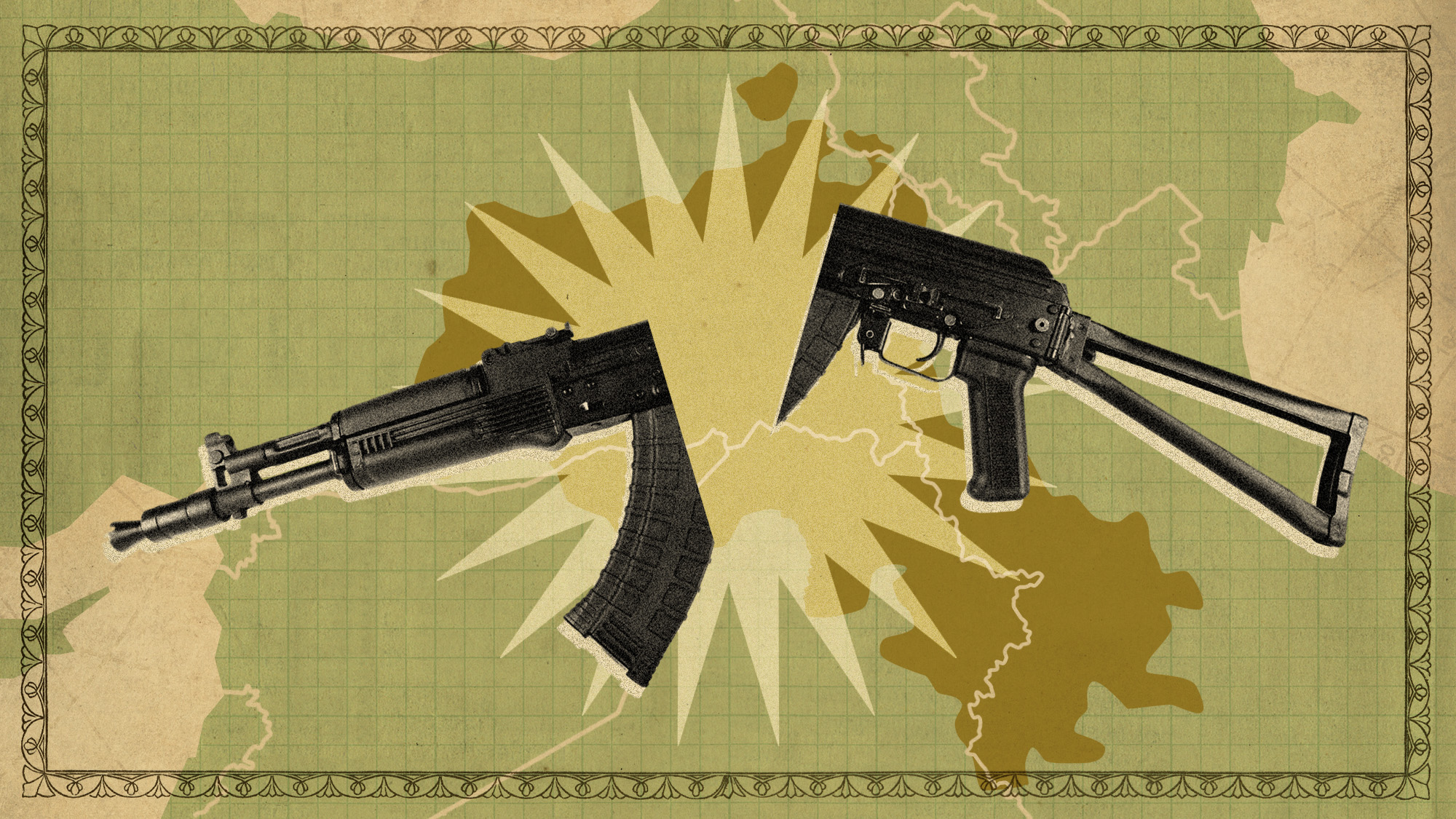Why Turkey's Kurdish insurgents are laying down their arms
The PKK says its aims can now be 'resolved through democratic politics'

A free daily email with the biggest news stories of the day – and the best features from TheWeek.com
You are now subscribed
Your newsletter sign-up was successful
The Kurdistan Workers' Party, known as the PKK, has announced that it will disband and disarm, potentially ending four decades of bloody conflict with Turkey.
The militant group said that "all activities" conducted under its name would come to an end after a call by its jailed leader, Abdullah Öcalan, in February for it to disarm. The PKK has "completed its historical mission", said a statement published by a news agency close to the group, and the struggle against Turkey's oppression of Kurdish people could now continue via "democratic politics".
The move "signals the potential end of a conflict that has plagued the region", said Al Jazeera, "spilling over" into Iraq and Syria and killing an estimated 40,000 people.
The Week
Escape your echo chamber. Get the facts behind the news, plus analysis from multiple perspectives.

Sign up for The Week's Free Newsletters
From our morning news briefing to a weekly Good News Newsletter, get the best of The Week delivered directly to your inbox.
From our morning news briefing to a weekly Good News Newsletter, get the best of The Week delivered directly to your inbox.
'The laying down of arms'
The PKK has "waged an insurgency against the Turkish state since 1984", said Politico. Originally, it aimed to create an independent state for Kurds, an ethnic group of about 40 million people spread over Turkey, Iraq, Iran and Syria. Such independence was promised by the allied powers after the First World War, but never granted.
But in recent years the group has "called for more autonomy within Turkey instead", said CNN, and greater rights for Kurds, who are Turkey's biggest minority, accounting for "between 15% and 20%" of the population.
The PKK has been designated a terrorist organisation by Turkey, the UK, EU and US. After the collapse of multiple ceasefires, the conflict "has been on a low boil for years", said The New York Times. Öcalan, the group's founder and leader, has been imprisoned on an island near Istanbul since 1999, although occasional attacks have "revived fears of a wider conflict".
But last October Devlet Bahceli, one of Turkey's most powerful politicians and a key ally of President Erdogan, made Öcalan an offer: if he would disband the PKK, it would open a pathway to ending his life sentence.
A free daily email with the biggest news stories of the day – and the best features from TheWeek.com
In February, Öcalan argued that the PKK had outlived its original mission and called for it to dissolve itself. "I am making a call for the laying down of arms," he said in a message to his followers. In March, the PKK declared an immediate ceasefire with Turkey, and this week "echoed" Öcalan's message.
The decision was also influenced by "current developments in the Middle East", the group said. It has been "increasingly weakened" in northern Iraq where it is based, having been "pushed out of Turkey", said Reuters. Affiliated Kurdish forces in Syria have also been weakened by the fall of President Bashar al-Assad to "Turkey-backed rebels".
Lasting peace?
President Erdogan hailed the "peace and fraternity" the decision might herald. It is an "important threshold" towards Ankara's goal of a country free of terrorism, he said. "The doors of a new era in every area, namely strengthening politics and democratic capacity, will be opened. The winners will be our people and country, and actually all our siblings in our region."
Nechirvan Barzani, president of Iraq's semiautonomous Kurdish region, said the decision showed "political maturity", laying the foundation for a "lasting peace" and the end of "decades of violence, pain and suffering". The Iraqi government also welcomed the move as a "significant opportunity" to "end longstanding conflicts".
But the decision to dissolve the PKK "does not guarantee peace", said Reuters. It "paves the way for agreeing a tricky legal framework". A PKK official said weapon handovers were "contingent on Ankara's response and approach to Kurdish rights, and the fate of PKK fighters and leaders". The PKK and pro-Kurdish politicians have called for Öcalan's release, and for him to oversee disarmament.
It's not known whether the PKK will win concessions, and it "remains unclear" how the process will work, said Al Jazeera. Questions remain over "how weapons would be disposed of" and "the future of PKK fighters", including affiliate forces like the Kurdish YPG militia in Syria.
Chas Newkey-Burden has been part of The Week Digital team for more than a decade and a journalist for 25 years, starting out on the irreverent football weekly 90 Minutes, before moving to lifestyle magazines Loaded and Attitude. He was a columnist for The Big Issue and landed a world exclusive with David Beckham that became the weekly magazine’s bestselling issue. He now writes regularly for The Guardian, The Telegraph, The Independent, Metro, FourFourTwo and the i new site. He is also the author of a number of non-fiction books.